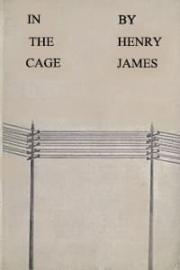
In the Cage
Classic Fiction
Henry James’s novella In the Cage tells the story of a young women, the “betrothed of Mr Mudge”, who works at a post-office counter sending telegrams mostly from the “idle rich” to their fellows to arrange their meetings, parties and other affairs. Concerned, as ever, with the plight of the not so well-to-do–and particularly the role and circumstances of women–James finely delineates our heroine’s increasing preoccupation with Captain Everard for whom she sends a considerable number of messages and about whom she has increasingly warm thoughts: “people of her sort… didn’t count as infidelity, counted only as something else: she might have been curious, since it came to that, to see exactly as what”.
In the Cage (written in the same year as the more well-known The Turn of the Screw is a sly, slight, vaguely sentimental work but one that acts as a fine introduction to this most convoluted of writers. Exact (“exacting” yet with a pointillist’s precision) is the word most often used to describe James’s prose but very often the modern reader will find his hesitant, pedantic, clause-heavy sentences difficult to follow, overlong and tortuously complex. But the key to reading and enjoying James is in succumbing to those very sentences, allowing his perfect ear and fine metre to establish its own rhythm, letting it guide one’s response to his beautiful, matchless use of language.



